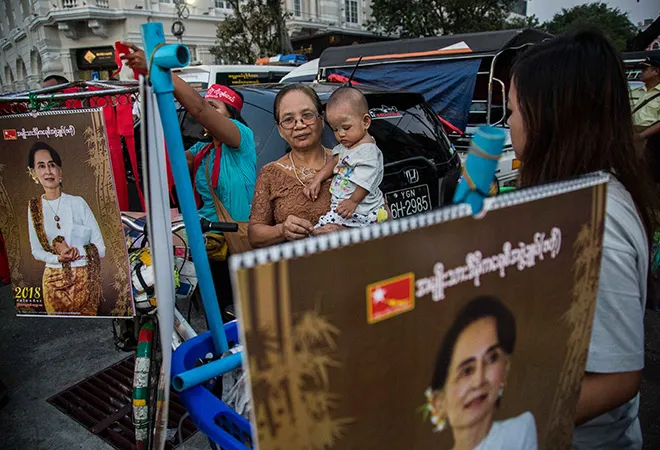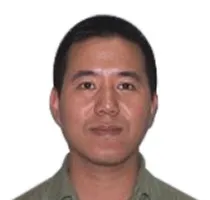-
CENTRES
Progammes & Centres
Location

Myanmar’s election commission announced last week that general elections would be held on 6 November 2020–––the third since political reforms were initiated in 2010. Over 90 political parties are likely to contest a total of 1,171 seats in both houses of union parliament and in the state/regional legislatures.
Discussions on the upcoming election have so far focused on the two major political parties–––the ruling National League for Democracy (NLD) and the opposition Union Solidarity and Development Party (USDP)–––around issues on whether the NLD would be able to retain power or if the military-backed USDP would be able to make a comeback.
Even as the NLD and the USDP are likely to remain the two largest parties in post-November elections, there is a sense in some quarters that neither may win enough seats to form government and this may throw up opportunities for smaller political and ethnic parties to decide who forms the next government in Myanmar.
Three factors are key for the smaller political and ethnic-based parties to turn the elections in their favour. First, this will be more a function of the performance of NLD and USDP. Second, emergence of new parties and alliances and how they will affect the performance of the two major parties and lastly, electoral strategies ethnic-based parties.
NLD leader and state counsellor Aung San Suu Kyi’s role in leading from the front in defending the country against genocide allegations at the International Court of Justice in The Hague in December has further boosted her popularity among the Bamar majority community that makes up about 70 per cent of the country’s population.
"NLD leader and state counsellor Aung San Suu Kyi’s role in leading from the front in defending the country against genocide allegations at the International Court of Justice in The Hague in December has further boosted her popularity among the Bamar majority community that makes up about 70 per cent of the country’s population."
The NLD party seems confident it will win the upcoming election, though party leaders admit it may not repeat the 2015 landslide victory. Senior party leader Monywa Aung Shin reportedly said the NLD would “secure an electoral victory close to that in 2015.” In the 2015 general election, the NLD won an overwhelming 390 seats out of the 498 seats that were contested for both houses of union parliament (25 percentage of the total 664 seats are reserved for the military).
The NLD came to power by positioning itself as a party that would find resolution to the decades-old ethnic armed conflicts. As its tenure comes to the close, peace remains elusive with relentless conflicts in several ethnic areas and the 21st century Panglong peace conference it initiated has stalled. Moreover, the ruling party has failed to amend the constitution and its economic policies and performance have not met high expectations of the people.
Between January and March this year, Suu Kyi has visited almost a dozen provincial cities many of these were ethnic minority areas. Recently, a senior party leader Zaw Myint Maung has said that in ethnic states the NLD would “not field candidates from the lowlands
The formation of new parties and political alliances in recent years such as the People’s Party and the United Political Parties Alliance (UPPA) may split NLD’s support-base. While the People’s Party was formed in August 2018 by student leaders who participated in the 1988 student uprising, the UPPA was launched in February this year by nine political parties with the intention to bring about changes through “collective strength.”
"The formation of new parties and political alliances in recent years such as the People’s Party and the United Political Parties Alliance (UPPA) may split NLD’s support-base."
On the other hand, the emergence of new political parties may upset the opposition USDP’s prospects as they may divide the military sympathisers. Two new political parties were formed by former generals who were instrumental in the creation of the USDP. In February 2019, former army general Shwe Mann, who was ousted as the head of USDP in 2015, formed a new party called the Union Betterment Party. A month later, another former general Soe Maung, a close confidant of former senior general Than Shwe, formed the Democratic Party of National Politics.
The biggest lesson that the ethnic parties seem to be have learned from the past elections has been to avoid vote-splitting and several ethnic parties have already merged such as Kachin State People’s Party, the Karen National Democratic Party, the Chin National League, the Kayah State Democratic Party and the Mon Unity Party. The new parties have “agreed to make alliances with other ethnic parties
This of course is not the first time the ethnic parties are trying to position themselves to shape election outcomes. In the 2015 general election, NLD’s landslide victory and divisions within the ethnic parties ensured there was no such an opportunity. With the ethnic parties forming “alliances and becom
The views expressed above belong to the author(s). ORF research and analyses now available on Telegram! Click here to access our curated content — blogs, longforms and interviews.

K. Yhome was Senior Fellow with ORFs Neighbourhood Regional Studies Initiative. His research interests include Indias regional diplomacy regional and sub-regionalism in South and Southeast ...
Read More +